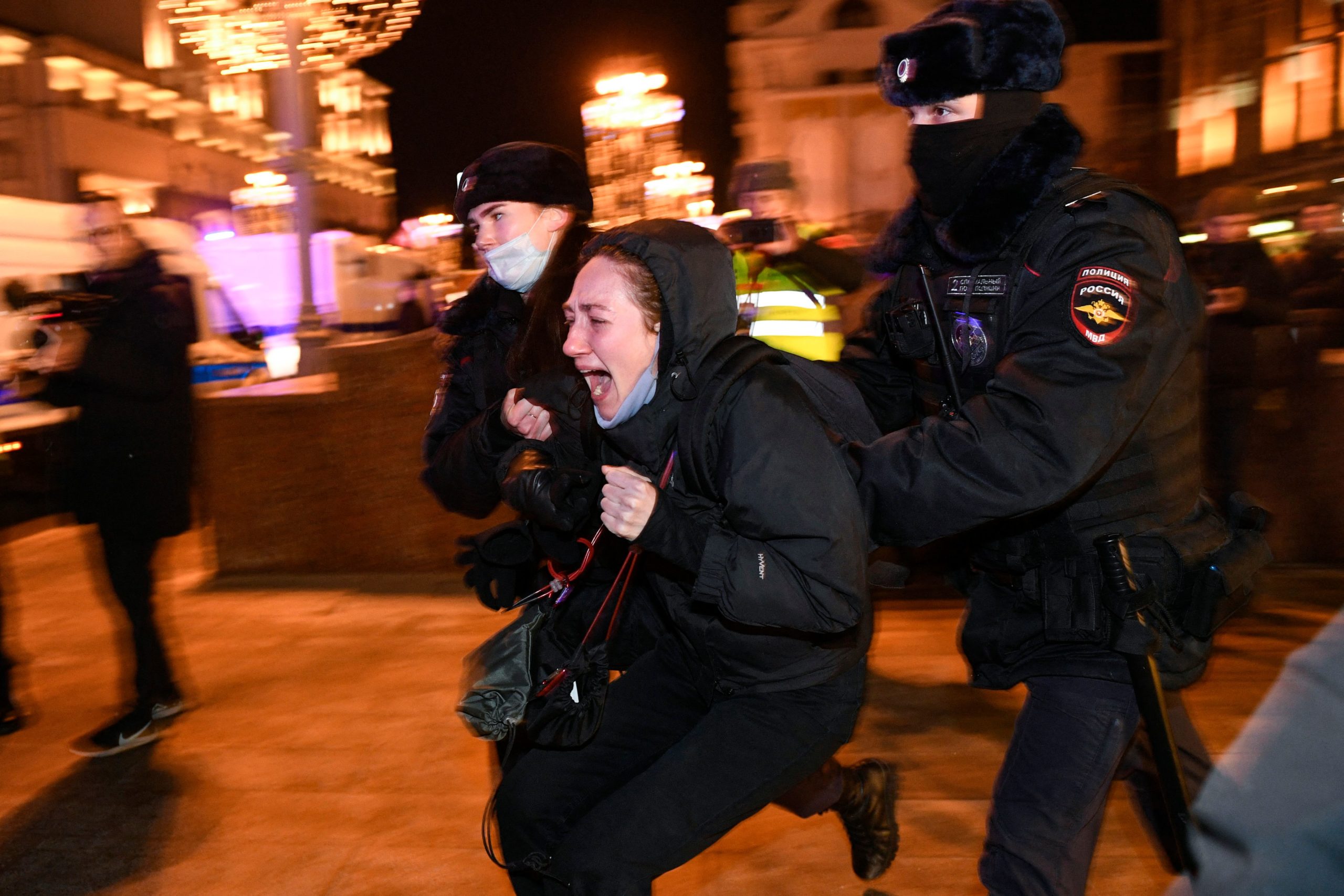Russian anti-war protesters often face borderline “torture” inside police stations, including psychological abuse and sexual threats, Mark Narusov, a protester that was detained by the Russian police for protesting the war in Ukraine, told the Daily Caller.
Narusov, along with a group of 25 people, was apprehended after shouting “no war” outside a metro stop in Moscow, he told the Daily Caller in an interview. He then said he was taken in a police bus to a station 1.5 hours away and faced hours of interrogation.
“The police officers didn’t communicate where we were going, of course didn’t read the Miranda Rights to us or anything,” he said, noting that they were not physically hurt inside the bus.
“At the police station, they confiscated our phones,” and everyone who refused was put in a jail cell, he said. The police officers took fingerprints, saliva testing and mugshots, he said, claiming that doing so to those detained is illegal under Russian law.
Mugshots are “particularly useful” because the Moscow subway system has “advanced face identification technology” to track and detain protesters, Narusov said.
“What happened next was borderline torture… There were police officers in civilian clothing who took each one of us in order for interrogation,” using techniques that could be “absolutely clearly classifiable as emotional abuse,” he said.

TOPSHOT – Police officers detain a demonstrator during a protest against Russia’s invasion of Ukraine in Moscow on February 24, 2022. – Russian President Vladimir Putin launched a full-scale invasion of Ukraine on Thursday, killing dozens and triggering warnings from Western leaders of unprecedented sanctions. Russian air strikes hit military installations across the country and ground forces moved in from the north, south and east, forcing many Ukrainians flee their homes to the sounds of bombing. (Photo by Alexander NEMENOV / AFP) (Photo by ALEXANDER NEMENOV/AFP via Getty Images)
“They started calling everyone names, there were a lot of threats of sexual violence directed towards women” and even himself, he continued.
“I was personally threatened with them putting me in an actual prison and then there being Dagestani cocks in my mouth,” he said. “One of the officers in civilian clothing even made [sexual] sounds” imitating what would happen to him.
“I was one of the lucky ones… there are a lot of cases of violence happening during the interrogations, people getting hit. In our group of 25, one person was physically harmed,” and one protester was threatened to be killed, he continued.
All the protesters were then sentenced to a court date, and Narusov said he received the lowest possible fine of 10,000 rubles ($90).
“When I had to explain why I went to the protest, I had to use the Orwellian term ‘special military operation,’ because one can not say war,” he said. Most of the people in his group got “knocks at the door” by police officers weeks later to “dissuade them from reoffending,” he said.
Protesting in Russia is becoming increasingly difficult, as “the Red Square and many other squares in Russia are just completely blocked off,” Narusov said. Holding up blank signs, signs that merely say “two words” or that have stars instead of words will also get you detained, he said. Wearing green wrist bands or using a Russian flag without the red stripe — two anti-war symbols — will also land you in the police station, he said. (RELATED: ‘They’re Lying To You’: Woman Runs Into Frame, Interrupts Live Russian Broadcast To Protest War In Ukraine)
“I have lived in Russia for [almost] the entirety of my life,” and the media landscape has categorically changed “after the start of the war,” Narusov concluded. People can still use a VPN, Twitter and Telegram to get independent reporting, but those in rural Russia have difficulty accessing it. Nearly all news organizations not controlled by the Russian government were closed down after March 4, when Russia passed a law banning the publication of narratives contrary to that of the government. Offenders can face up to 15 years in prison.
More than 750 people have been arrested in Russia for protesting against the war.


